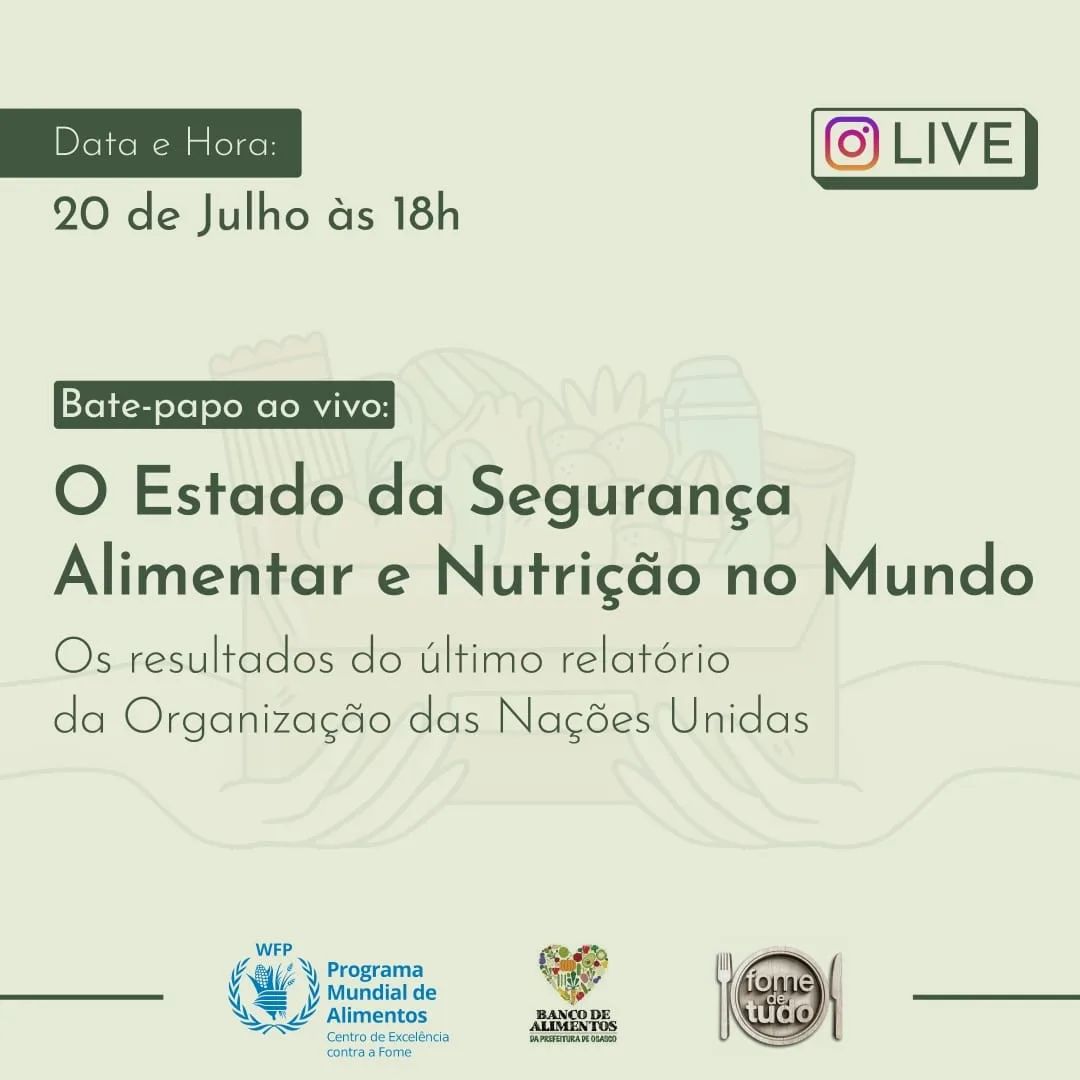 Last week, on 12 July, the new United Nations report, the State of Food Security and Nutrition in the World (SOFI), was released, bringing data on the worrying situation of food and nutritional insecurity around the world. To disseminate the results and address this issue more thoroughly, the Osasco Food Bank organised a live stream through the organization’s Instagram last Thursday, July 20, to discuss possible solutions to the problem of growing hunger in the world and in Brazil with personalities and experts relevant to the topic. The 2023 edition of the report revealed that between 691 and 783 million people went hungry in 2022, with an average of 735 million.
Last week, on 12 July, the new United Nations report, the State of Food Security and Nutrition in the World (SOFI), was released, bringing data on the worrying situation of food and nutritional insecurity around the world. To disseminate the results and address this issue more thoroughly, the Osasco Food Bank organised a live stream through the organization’s Instagram last Thursday, July 20, to discuss possible solutions to the problem of growing hunger in the world and in Brazil with personalities and experts relevant to the topic. The 2023 edition of the report revealed that between 691 and 783 million people went hungry in 2022, with an average of 735 million.
During the live, the main themes presented in the report were discussed, such as the causes of food insecurity and hunger, data on food and nutrition insecurity in the world and in Brazil, the methodology of the report, the importance of data to support public policies, megatrends in agri-food systems and the relationship between food-nutrition-development. For Igor Carneiro, Coordinator and Partnership Officer at the World Food Programme (WFP) Centre of Excellence against Hunger, the report’s data serves to support public policies at all levels aimed at the population, especially people in situations of vulnerability.
“With nearly seven in ten people projected to live in cities by 2050, this megatrend is shaping agri-food systems and their ability to provide affordable healthy diets for all and help eradicate hunger, food insecurity and malnutrition. SOFI 2023 reaffirms the urgent need to address climate change, conflict, economic downturns, and persistent inequalities that contribute to their disproportionate impacts on vulnerable populations if we are to make progress towards our goal of ending hunger by 2030 – SDG2. This is all very important, as it directly impacts countries’ GDP, their productivity and the health of the population.”, said Igor.
In addition, the CEO and founder of Movimento Fome de Tudo, Úrsula Corona, also raised the issue of food waste and its contribution to the problem of hunger in the world. “The first issue I see is the culture of waste. It is important to understand how an ordinary person prioritises a change within their home, in their family nucleus”, said Úrsula. She also gave tips to participants on how to organise themselves when shopping, make full use of food and stressed the importance of composting.
The live broadcast had about 1925 people and had the participation of João Perez, Food Security Manager of Osasco-SP, Úrsula Corona, CEO and founder of Movimento Fome de Tudo and supporter of WFP and the UN Global Compact, Igor Carneiro, Coordinator and Partnership Officer of the WFP Centre of Excellence against Hunger and Isis Domingues, PhD student at FGV/SP and resident researcher at the Institute of Development Studies in Brighton, UK, in the debate.
Read the full SOFI 2023 report here.




